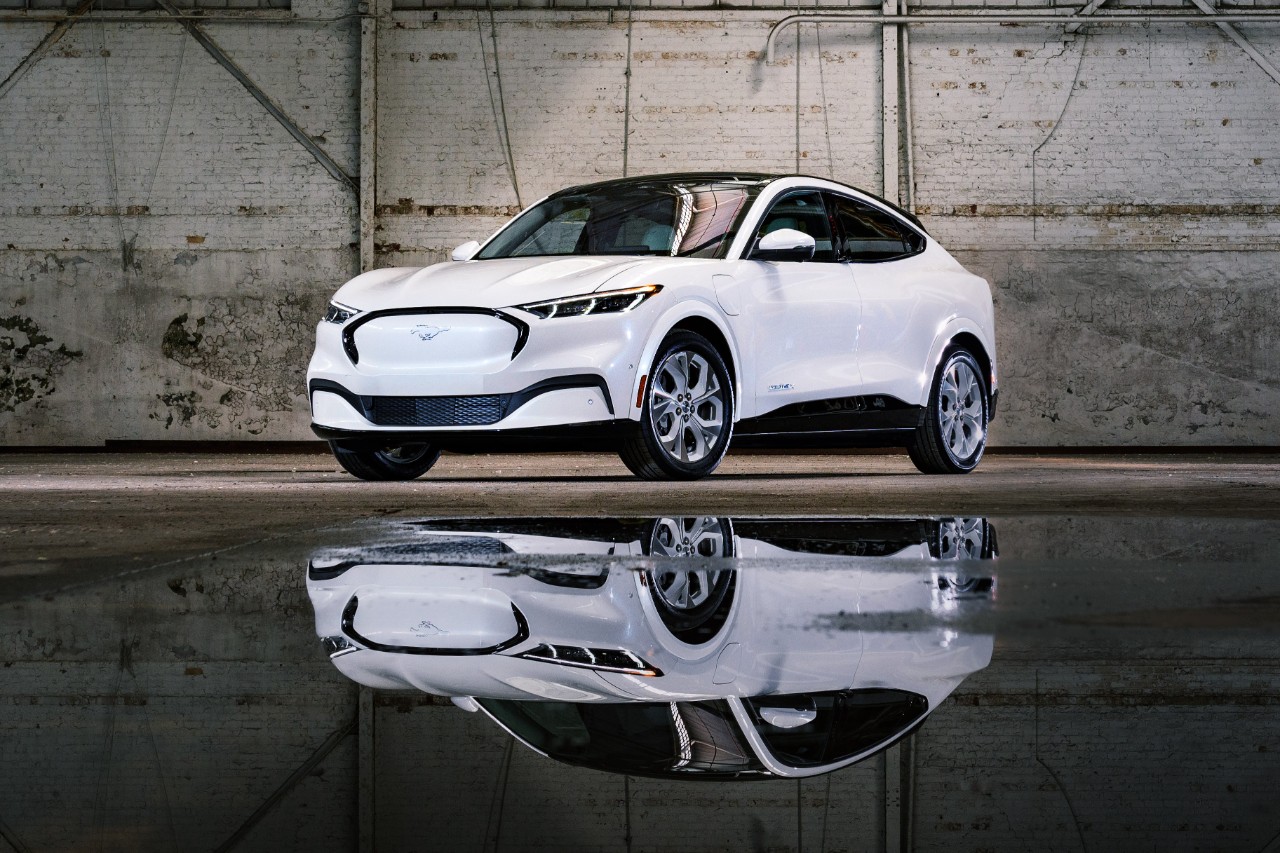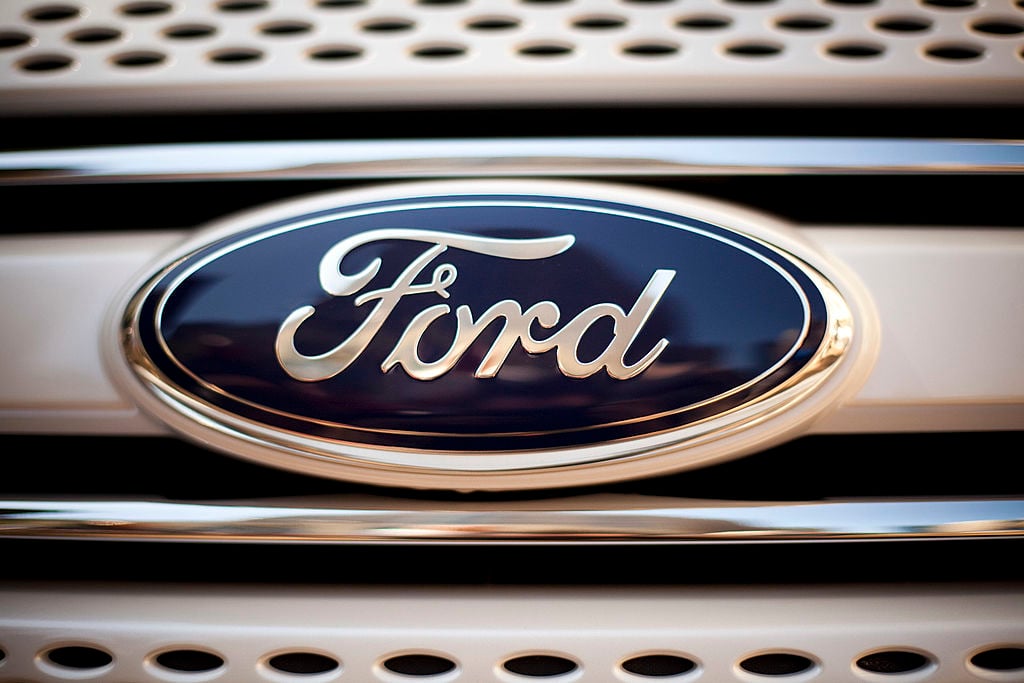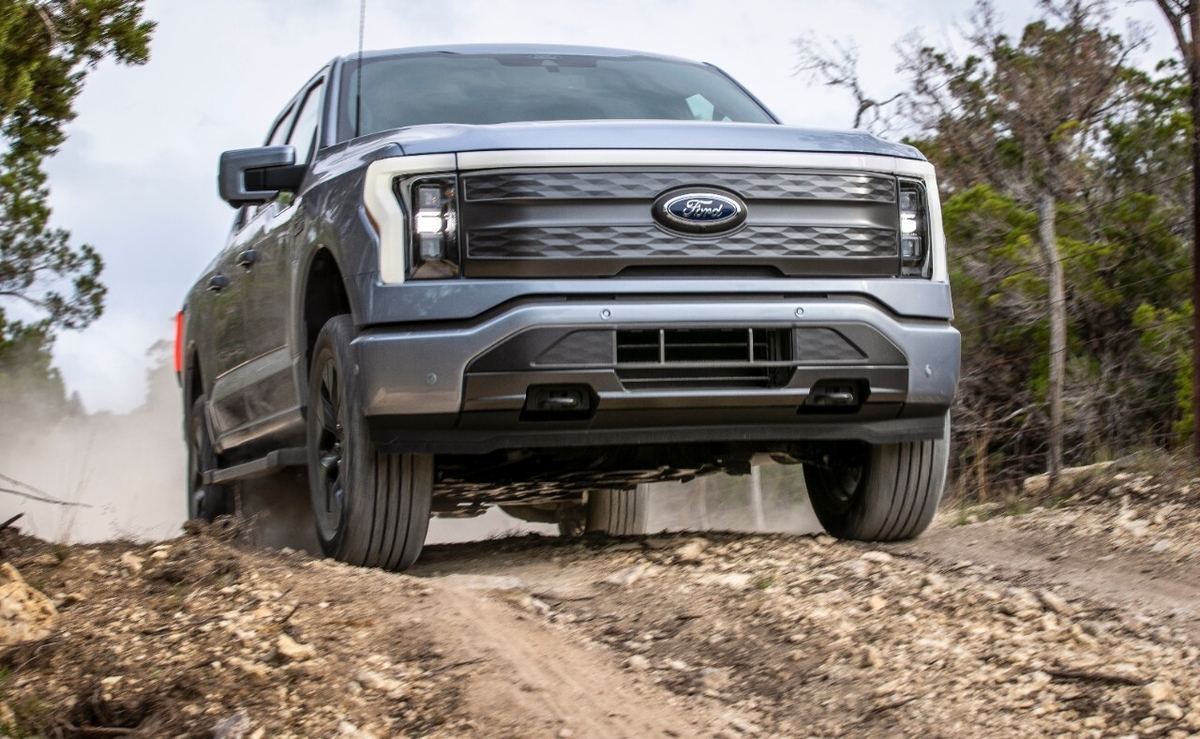
Ford's Fusion Energi charging. Source: Ford Motor Company
There's no doubt Ford Motor Company (F 1.39%) is doing many things right these days. In fact, the Blue Oval is practically the people's champion after it managed to avoid bankruptcy and the taxpayer-fueled bailout during the recent recession that engulfed crosstown rivals General Motors (GM 2.65%) and Chrysler. But Ford did make one mistake recently, and the cynics came out in full force to weigh in. Here's a look at what happened. Recent evidence suggests that the media backlash was overblown -- shocker, right?
Checks and apologies
Recently, in one of very few mishaps, the folks at the Blue Oval were forced to announce a reduction in a handful of its hybrid and electric vehicles' fuel-economy ratings. Ford's biggest error was found with its estimates for the Lincoln MKZ Hybrid, which has been a more popular option than the company anticipated, partially because of the vehicle's previously stated combined city and highway rating of 45 miles per gallon. Ford has now dropped that rating to 38 miles per gallon.
While the Lincoln MKZ was the biggest fuel-efficiency loser, Ford's fuel-economy reduction also negatively affected five additional models.
Ford issued an official apology and also wrote "goodwill" checks, ranging from $200 to $1,050 per vehicle, to reimburse owners.
"We apologize to our customers and will provide goodwill payments to affected owners," Ford CEO Alan Mulally said in a statement. "We also are taking steps to improve our processes and prevent issues like this from happening again."
Negative sales impact?
Many analysts were curious about what negative effect could result from the reductions in fuel-economy on these Ford models, especially as J.D. Power and Associates considers fuel-economy as one of the most important reason consumers purchase a Ford hybrid.

Source: Ford Motor Company
As an example of the potential negative impact, consider that sales of Ford's C-MAX are down 34% through June, compared to last year, after Ford lowered the fuel-economy on its C-MAX hybrid in a similar situation last year.
But recent evidence suggests that car buyers have brushed off the fuel-economy mistake, at least so far.
Ford's Fusion Energi, one of the company's models with a revised fuel-economy rating, not only set a personal record for sales last month, but it also secured the company's No. 1 ranking for electric vehicle manufacturing, according to InsideEVs.
Ford sold 1,939 vehicles of its Fusion Energi, according to InsideEVs, a 44% sequential jump in June from the previous month -- even more impressive when you consider that it set its previous monthly sales record for the model in May.
Bottom line
It appears that the cynics criticizing Ford in the media for its calculating mistake can take the day off and consumers can go about their business as usual. So far, no evidence suggests that Ford will experience any negative impact and still has much goodwill built up with the American consumer.
Furthermore, the financial implications of Ford writing out compensation checks to owners of the vehicles is negligible. Of the estimated 200,000 vehicles affected by the adjustments, the total bill could reach a maximum of only $210 million for Ford. But that's assuming that every single one of the 200,000 models is the MKZ Hybrid, which is certainly far from the case, and the final cost will be much lower. Moreover, that hypothetical maximum $210 million bill is chump change when you consider that Ford earned $8.6 billion in pre-tax income last year.
Ultimately, thanks in part to Ford's quick apology and willingness to compensate consumers, recent sales evidence suggests there won't be any negative effect on sales or the company's brand image. Ford is, and looks to remain, the people's champion -- good news for investors and car buyers alike.







